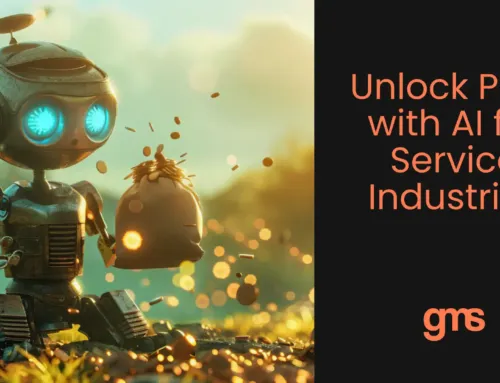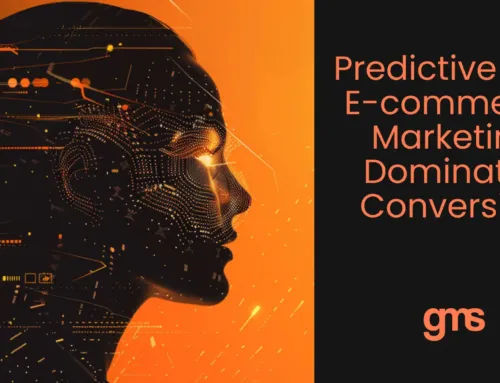The AI Illusion: Why Most Businesses Are Stuck in a Productivity Fantasy
The AI illusion has captivated businesses, making them believe that AI will handle their marketing, content creation, and productivity on autopilot. It’s an enticing promise—plug in a tool, automate tasks, and watch revenue roll in effortlessly. If you’ve noticed more businesses rushing to embrace AI-generated content, thinking they’ve unlocked a secret formula for success, you’re not alone.
But something isn’t adding up. More AI content is flooding the market, yet engagement rates are dropping. Businesses are automating workflows, yet customer loyalty remains stagnant. The reason? AI isn’t replacing the fundamentals of strategy, persuasion, and human connection—it’s merely amplifying what’s already there. And for many, that means multiplying inefficiencies, not eliminating them. The illusion is clear: AI can support, but it will never replace high-level thinking, positioning, and market psychology.
Need help with digital marketing? Then book your FREE discovery consultation today.
The AI Productivity Trap: More Activity, Less Impact
AI tools are making businesses more efficient, but not necessarily more effective. Marketers are now producing more content, more emails, and more social posts than ever before—but how much of it actually moves the needle? The AI illusion convinces companies that doing more means achieving more, but in reality, they’re just automating mediocrity at scale.
Efficiency without strategy is just speed without direction. Many businesses fall into proxductivity—the illusion of productivity—where they appear busy but fail to create meaningful impact. Instead of using AI as an amplifier for their strongest strategies, they’re treating it as an automatic fix, flooding their audience with content lacking depth, differentiation, or intent. AI should enhance execution, but it will never replace strategy, market positioning, or consumer psychology.
Why More Automation Doesn’t Mean Better Marketing
Automation removes friction, but it doesn’t add insight. AI-generated content lacks the emotional resonance, cultural nuance, and unique brand voice that make businesses memorable. Every brand now has access to the same AI tools, producing the same templated blogs, the same robotic email sequences, and the same generic social media posts. The result? A race to the bottom where standing out becomes even harder.
AI-Generated Content: The Flood That’s Drowning Engagement
If AI was the magic solution businesses believed it to be, we’d see higher engagement, stronger conversions, and deeper audience loyalty. Instead, we’re witnessing the opposite—declining organic reach, lower engagement rates, and more content being ignored.
The reason? AI content often lacks originality, emotional depth, and strategic intent. Search engines and social platforms are catching on, deprioritising AI-generated fluff in favour of content that demonstrates true expertise and human connection. Businesses that assume “more content = better results” are falling into the AI illusion, failing to realise that differentiation, storytelling, and authenticity still drive conversions.
Why Google and Social Algorithms Are Punishing AI Content
Google has already signaled that low-quality AI content will be deprioritised in search rankings. Social media platforms, built around human engagement, are favouring genuine interaction over automated posts. AI might generate content faster, but without a unique perspective, it won’t rank, won’t convert, and won’t build authority.
The Real Role of AI: A Tool, Not a Strategy
AI is a force multiplier, not a replacement for expertise. The businesses that win in this AI-driven era are not the ones producing the most AI-generated content, but the ones leveraging AI to execute on a strategic, well-defined vision. AI works best when it’s applied with precision, purpose, and human intelligence.
How Smart Businesses Use AI Without Falling for the Illusion
- They focus on impact, not just automation. AI is a tool for execution, but the strategy behind it determines success.
- They combine AI with storytelling and psychology. Great marketing still requires emotion, persuasion, and deep audience insight.
- They use AI to enhance human creativity, not replace it. AI can streamline processes, but differentiation, brand authority, and market leadership require human ingenuity.
Need help with digital marketing? Then book your FREE discovery consultation today.
How does AI increase efficiency and productivity?
AI increases efficiency and productivity by automating repetitive tasks, analysing data at scale, and enabling faster decision-making. Businesses leverage AI to streamline operations—whether through chatbots handling customer inquiries, AI-driven content generation, or predictive analytics optimising supply chains. On the surface, it appears that AI is an instant productivity booster. But this is where the AI illusion takes hold: many businesses assume that automating tasks means increasing productivity, when in reality, they’re just speeding up inefficiencies.
The AI illusion convinces businesses that marketing and operations will run themselves, but efficiency is not the same as effectiveness. AI might generate thousands of words in seconds, but if that content lacks strategic intent, it’s just adding to the noise. AI can automate workflows, but if the systems behind them are flawed, it magnifies the inefficiencies. Productivity isn’t about doing more—it’s about achieving meaningful impact. Businesses that understand this use AI as a tool, not a crutch.
What is the relationship between productivity and efficiency?
Productivity and efficiency are often used interchangeably, but they serve different functions. Productivity refers to the output generated, while efficiency is about achieving that output with minimal wasted resources. AI can increase efficiency by automating processes, reducing errors, and speeding up execution. However, the AI illusion has led businesses to believe that high efficiency automatically translates into high productivity. In reality, without strategic oversight, AI can lead to proxductivity—a state where businesses appear to be doing more but aren’t actually achieving more.
The businesses that fall into this illusion measure success by activity, not impact—pushing out AI-generated content, automating customer interactions, and scaling repetitive tasks without assessing whether they actually improve engagement, conversions, or revenue. True productivity comes from a balance between efficiency and effectiveness—where AI supports, but doesn’t replace, strategic decision-making. Those who rely solely on automation will struggle against those who understand how to use AI as a force multiplier.
What is the efficiency of artificial intelligence?
Artificial intelligence is efficient only when deployed strategically. AI can process data at speeds no human can match, automate high-volume tasks, and optimise workflows. However, its true efficiency depends on the context. The AI illusion leads businesses to believe that AI is efficient by default—when in reality, it magnifies whatever state a business is already in. If a company has strong marketing and operations, AI makes them faster and more effective. If their systems are flawed, AI simply accelerates those flaws.
AI’s efficiency is often mistaken for effectiveness. Businesses flooded the internet with AI-generated content, assuming search engines would reward quantity, only to find that Google is deprioritising low-value AI content. The same happens with automation—AI-driven customer service may reduce response times but worsen the customer experience if it lacks a human touch. True efficiency doesn’t come from AI itself but from how well AI is integrated with human intelligence.
How does AI make life more efficient?
AI makes life more efficient by reducing cognitive load, automating routine tasks, and enabling faster decision-making. From AI-powered assistants scheduling meetings to smart algorithms curating personalised content, AI eliminates friction in daily work. But the AI illusion creates the expectation that AI will solve inefficiencies rather than assist in managing them. Many businesses assume AI will run marketing campaigns, write compelling copy, and close sales, yet fail to realise that AI still requires human strategy to drive results.
Efficiency isn’t just about automation—it’s about reducing complexity while increasing effectiveness. AI, when used improperly, can introduce new inefficiencies by creating more noise, overcomplicating processes, or requiring constant oversight to fix automation errors. The key is not to replace human intelligence with AI, but to enhance human capabilities through AI. The businesses that succeed are those who blend AI with deep strategy, creativity, and market psychology—rather than relying on it as a shortcut.
The Future of Marketing: AI is an Assistant, Not a Crutch
The AI illusion will fade. The businesses relying solely on automation will struggle. The ones who use AI intelligently—blending it with sharp strategy, consumer psychology, and creative storytelling—will thrive.
The real question isn’t “Can AI do this for me?”—it’s “How can AI make my best strategies even stronger?” AI can accelerate execution, but it won’t replace influence, persuasion, or market leadership.
Marketing isn’t about who can produce the most content—it’s about who can capture attention, inspire action, and create lasting impact. AI may generate words, but it will never replace insight, trust, and emotional connection. And that’s what separates the leaders from the lost.
About the Author
GMS Media is a leader in cutting-edge marketing strategies that defy trends and set industry benchmarks. With a focus on high-impact, results-driven approaches, we help brands break free from the AI illusion and create marketing that actually converts. Founded in 2016 by Blake Micola and co-founded by Simon Train, GMS Media Group is dedicated to transforming your brand’s digital presence with tailored strategies, high-quality content, and data-driven insights.
GMS specialises in high-ROI digital ad strategies for brands that demand real results.
Follow GMS Media on LinkedIn to stay ahead of the curve.




